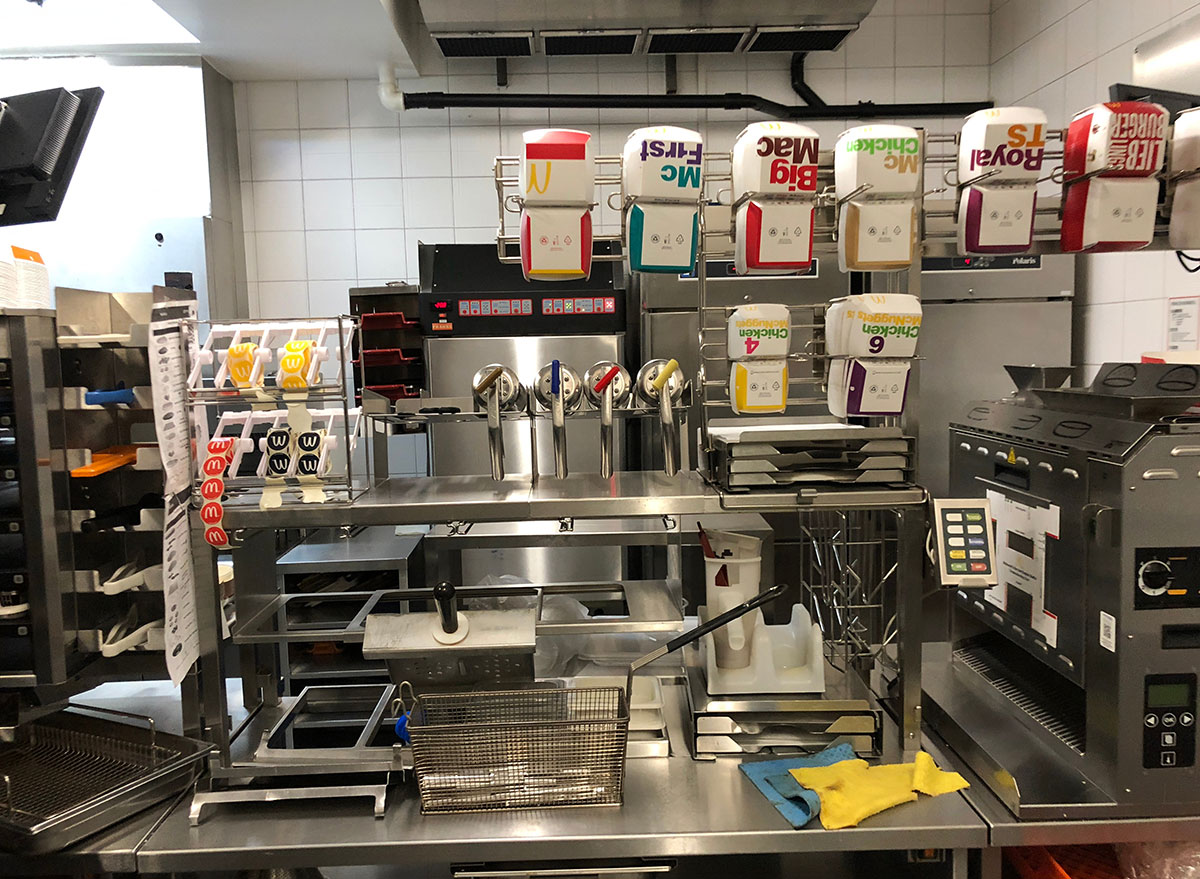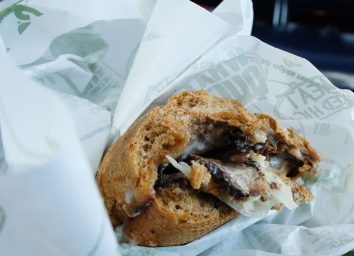McDonald’s Maintenance Workers Expose an Equipment Hazard That Could Make You Sick

In 2021, the phrase “McDonald’s hack” usually refers to a genre of content on TikTok—instructional videos on how to place Mickey D’s orders to get special off-menu items. But as it turns out, there’s some hacking taking place on the other side of the cash register, too. And it could make customers sick.
A recent investigation by Motherboard revealed that some McDonald’s store owners regularly “hack” into their own soft serve machines, using a device that allows them to bypass the equipment’s cleaning cycles. According to an internal memo from Taylor, the manufacturer of McDonald’s soft serve machines, “hacking” has been in practice since at least 2013. However, it’s unknown how many locations currently do this.
RELATED: Subway’s Newest Sandwiches Are a Safety Hazard, Operators Say
According to the report, soft serve machines at McDonald’s locations were being modified with “jumpers”—plastic or metal brackets attached to the back of the machine that can override a crucial part of its software. The Taylor machines are equipped to self-clean on a daily basis, and become inoperable or “locked” during cleaning cycles. “Jumpers” allow employees to unlock soft serve machines and skip the cleaning steps.
But why would McDonald’s operators want to do this? As revealed in a recent Wired article, the daily pasteurization process takes four hours to complete, and if interrupted, will automatically abort and restart. Taylor started outfitting its machines with pasteurization capabilities around 2005, after NBC ran an exposé on McDonald’s soft serve operation, the thrust of which was that MickeyD’s ice cream machines were dirty and likely to make customers sick. Pasteurization was an effective response to that complaint, but ended up creating other problems: Taylor machines regularly being offline or malfunctioning and getting stuck in cleaning-cycle loops.
The pressure to keep these machines running smoothly can be immense, a McDonald’s maintenance professional told Vice. Considering the popularity of certain McDonald’s soft serve items (for example, the seasonal Shamrock Shake), it’s easy to imagine how the benefits of a “hack” that could prevent machines from being out of service for long periods of time might outweigh the cons. The technician admitted that they were, in one instance, pressured to install the “jumper” by a McDonald’s operator. They refused.
This isn’t the only way operators have attempted to take matters into their own hands and crack the maintenance cycle of these machines. Kytch, a third-party electronic device developed by a pair of engineers, was also used by franchisees to “hack” into the software of Taylor’s soft serve machines in order to make them run more efficiently. However, McDonald’s went after Kytch, allegedly hiring private investigators to obtain the device. Kytch’s creators claim that soon after they did, the chain announced their own, very similar piece of technology.
For the record, both Taylor and McDonald’s are well aware of the “jumper hack” and have issued statements prohibiting its use. In 2013, Taylor issued a service bulletin naming jumpers “a violation of FDA Food Code [that] can greatly increase the risk of serving unsafe product to the public.” McDonald’s confirmed in a statement to Eat This that it does not authorize or condone “any systems that bypass the regular cleaning cycle.” However, they believe the problem of “hacking” is a small one.
“We believe this issue has impacted a very limited number of restaurants, and no recent instances of the bypass being used have been brought to our attention,” the statement reads.
The companies have disavowed the hack with good reason. Bypassing the sanitation cycle, which is the only guarantee of food safety, is a high-risk solution to a long-term problem. As Business Insider revealed in a 2018 interview with food-poisoning expert Bill Marler, soft-serve machines, if improperly maintained, can become sources of listeria, a potentially lethal bacterial infection. So the potential for unsafe soft serve at McDonald’s could be greater than you might have thought.
For more, check out McDonald’s Could Get Sued By Three Quarters of Its Franchisees For This, and don’t forget to sign up for our newsletter to get the latest restaurant news delivered straight to your inbox.








